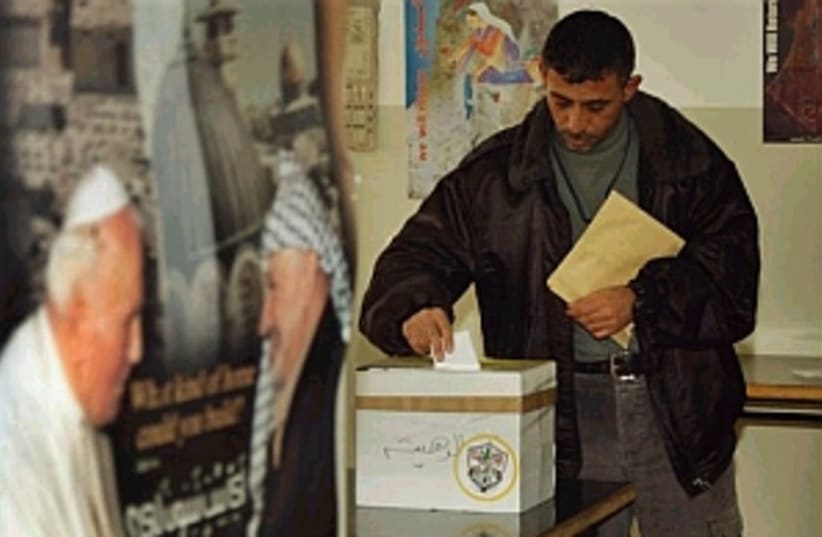| More about: | Fatah, Mahmoud Abbas, Palestinian National Authority, Balata |
Gunmen force canceling of Fatah vote
Violence stalls Gaza primaries; Ezra: No Fatah ballot boxes in e. J'lem.


| More about: | Fatah, Mahmoud Abbas, Palestinian National Authority, Balata |